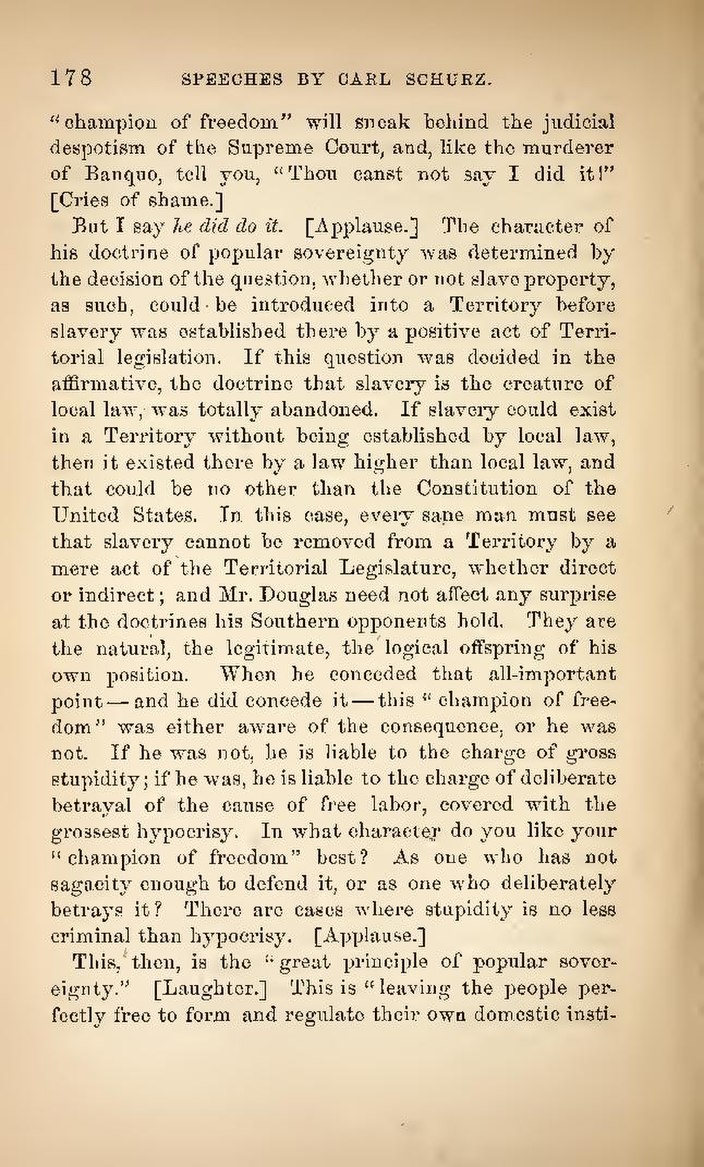“champion of freedom” will sneak behind the judicial despotism of the Supreme Court, and, like the murderer of Banquo, tell you, “Thou canst not say I did it!” [Cries of shame.]
But I say he did do it. [Applause.] The character of his doctrine of popular sovereignty was determined by the decision of the question, whether or not slave property, as such, could be introduced into a Territory before slavery was established there by a positive act of Territorial legislation. If this question was decided in the affirmative, the doctrine that slavery is the creature of local law, was totally abandoned. If slavery could exist in a Territory without being established by local law, then it existed there by a law higher than local law, and that could be no other than the Constitution of the United States. In this case, every sane man must see that slavery cannot be removed from a Territory by a mere act of the Territorial Legislature, whether direct or indirect; and Mr. Douglas need not affect any surprise at the doctrines his Southern opponents hold. They are the natural, the legitimate, the logical offspring of his own position. When he conceded that all-important point—and he did concede it—this “champion of freedom” was either aware of the consequence, or he was not. If he was not, he is liable to the charge of gross stupidity; if he was, he is liable to the charge of deliberate betrayal of the cause of free labor, covered with the grossest hypocrisy. In what character do you like your “champion of freedom” best? As one who has not sagacity enough to defend it, or as one who deliberately betrays it? There are cases where stupidity is no less criminal than hypocrisy. [Applause.]
This, then, is the “great principle of popular sovereignty.” [Laughter.] This is “leaving the people perfectly free to form and regulate their own domestic insti-
